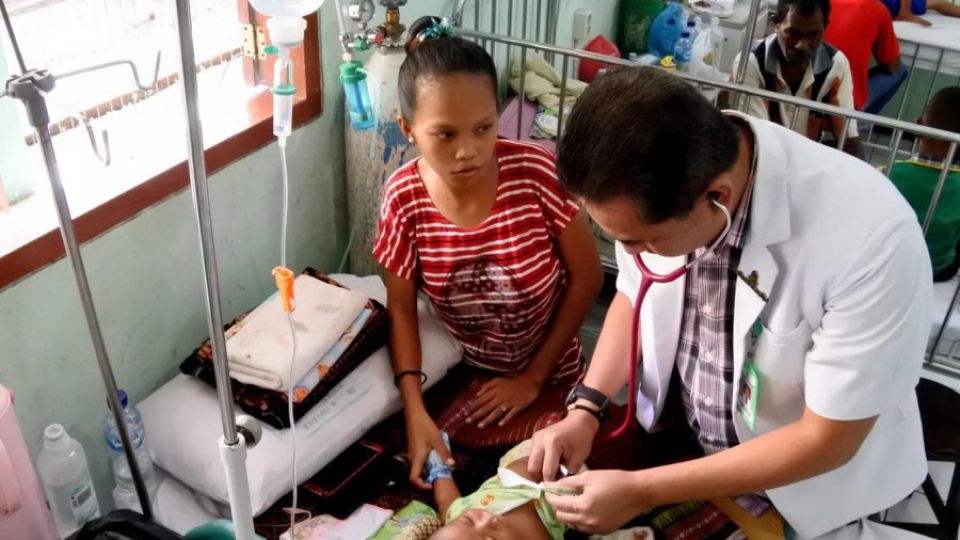June 14, 2023
JAKARTA – With average temperatures expected to rise with the return of the El Niño climate pattern to Indonesia, the Health Ministry has warned about a rising threat of dengue fever, as the hotter weather is expected to increase the incidence of mosquito bites by up to five times the average.
The mosquito-borne disease infects thousands and kills hundreds of people in the country each year.
Last year alone, the Health Ministry reported 143,000 cases of dengue fever, or around 52 cases for every 100,000 people, with West Java, Central Java, Bali and East Java being the largest contributors to the nationwide figure. The ministry also recorded 1,236 dengue deaths, mostly among children aged below 14 years.
As of May this year, at least 35,694 dengue cases and 270 deaths have been reported nationwide.
Imran Pambudi, the ministry’s director of communicable disease control and prevention, said dengue cases were expected to rise in the coming months due to the warmer weather during El Niño.
This could increase the risk of dengue transmission, as the frequency of mosquito bites tended to increase by three to five times when the temperature averaged above 30 degrees Celsius.
“This year, we need to be vigilant [about dengue] because we will enter El Niño season in mid-2023. As such, earlier this year, we issued a circular to remind all local administrations to be more vigilant about a [potential] spike in dengue cases,” Imran told a press conference on Monday.
He added that the hotter the weather, the more likely that large bodies of water would dry up to form smaller, stagnant pools, which were the ideal breeding ground for mosquitoes.
“This is what we need to watch out for, as the mosquitoes will be more aggressive, all the while there will be more places where they can breed,” Imran added.
Read also: El Niño returns, with moderate risk in Indonesia
In collaboration with regional administrations, the ministry plans to ramp up dengue surveillance and distribute dengue rapid test kits so they were more widely available at Puskesmas (community health centers) across the country.
The government is also waiting on approval from the Indonesia Technical Advisory Group on Immunization (ITAGI) for the inclusion of two dengue vaccines, Dengvaxia and Qdenga, in the national immunization program.
It also plans to boost the decades-old public awareness campaign focusing on the 3M protocols of mengubur (bury), menguras (drain) and menutup (cover) for stagnant water.
The ministry has also deployed Jumantik, or mosquito larva monitors, who are volunteers tasked with carrying out door-to-door control measures to curb the number mosquito larvae. In addition, it has sent out Pokjanal Posyandu, or village-level working groups at community health posts, which are tasked with monitoring and mapping mosquito larvae as well as educating the public about dengue fever in their assigned areas.
Read also: Ministry releases modified mosquitoes to curb dengue fever
As part of a dengue eradication pilot project in Semarang, Central Java, the ministry recently released mosquitoes infected with the Wolbachia bacteria, a natural competitor of the dengue virus that makes it harder to reproduce inside mosquitoes and hence, helps reduce the insects’ ability to transmit the virus to humans.
Plans are already in place to expand the pilot project to four other cities: West Jakarta, Bandung in West Java, Bontang in East Kalimantan and Kupang in East Nusa Tenggara (NTT).
The Meteorology, Climatology and Geophysics Agency (BMKG) has forecast an 80 percent probability that El Niño had arrived in the country this month. BMKG head Dwikorita Karnawati said in a statement on June 7 that the country should prepare against potential droughts, hot spots and wildfires due to the hotter weather and lower precipitation.
Separately, the United Nations’ World Meteorological Organization said last month that the five years from 2023 to 2027 would be the warmest recorded due to the dual effects of El Niño and global warming.


